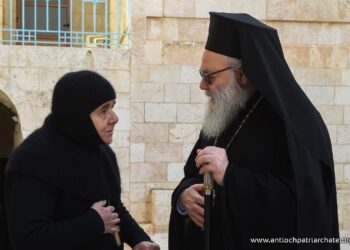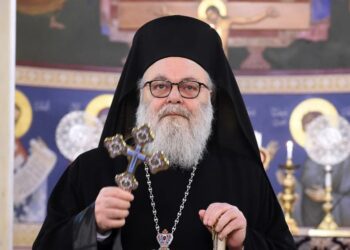The services of Holy Week will be held behind closed doors and without the participation of believers, as decided by the Holy Synod of the Patriarchate of Antioch, in compliance with the restrictive measures taken to deal with the coronavirus spread.
According to a statement issued by the Patriarchate, the Holy Synod, which met on April 4, decided —as did the Church of Greece— to celebrate the Resurrection of the Lord with a solemn Resurrection Pannychida on the day of the Leave-taking (Apodosis) of Pascha, May 27, 2020.
“As you know, we have been committed to halting church services, and we have requested from you to abide by these general measures taken by the whole world and to stay at home,” the statement said.
“You are called to do this through intensifying your daily prayers and reading of the Bible, writings and lives of the Holy Fathers, and everything that makes your houses ‘little churches’ filled with entreaties and prayers, while remembering that the ‘Kingdom of God is within you’.”
In the midst of all this, the Holy Synod chaired by Patriarch John of Antioch made the following decisions:
— we emphasize the necessity of strict adherence to the procedures taken by the official authorities, including the stay at home policies;
— we call upon the believers in all the Archdioceses, clergy, monastics and laity, to fully cooperate with the competent official and health authorities, in everything that provides aid;
— the services of the Holy Week and of Palm Sunday are to be held by just the priests and monastics behind closed doors without the participation of any of the believers, while activating the possibility of direct broadcasting through the websites of the parishes.
“While we accept the diversity of opinions and differing ideas in the approach to these matters, the aforementioned decisions and directives express the official position of the Antiochian Church. Accordingly, every violation of these decisions constitutes an explicit violation of the Church’s position, and the Church authorities are not responsible for any civil consequences of these violations,” the statement said.















